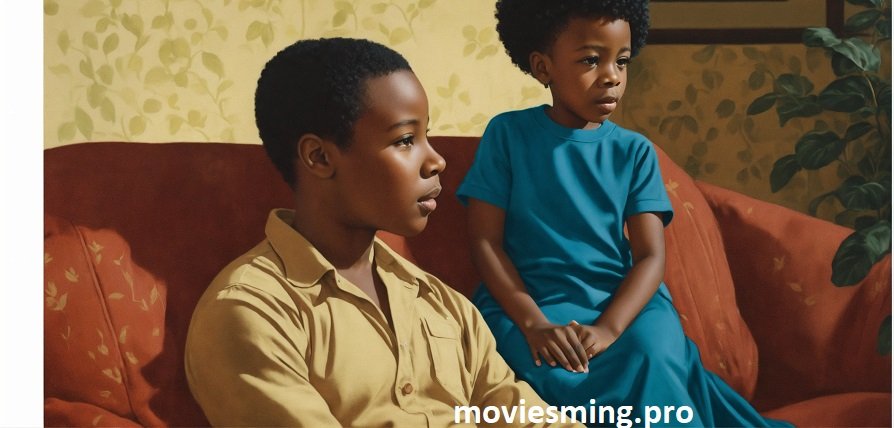Introduction
Sebastián Schindel’s “The Son,” the son movie review which explores familial bonds and the long-lasting effects of past decisions, captivates viewers. The film explores themes of guilt, repentance, and the unshakable relationships between parents and children against the setting of rural Argentina. This review provides a thorough study of “The Son,” looking at the film’s character development, narrative complexity, cinematography, and overall effect on the audience.
Plot Synopsis
The protagonist of “The Son” is Lorenzo, a reserved and reclusive country veterinarian who has a simple life. When a terrible incident from his past reappears, his entire world is turned upside down, making him face painful memories and long-forgotten secrets. Lorenzo’s journey is entwined with themes of forgiveness, parental responsibility, and the complexity of human relationships as the story progresses.
Character Analysis
The characters in “The Son” are essential to the plot because of their complex relationships. Joaquín Furriel portrays Lorenzo with eerie depth, showing him as a man racked by regret but motivated by a great need for atonement. His relationships with his kid and other people show facets of both resiliency and vulnerability, creating a moving picture of a man struggling with his history.
Themes Explored
The movie explores a number of subjects in great detail, such as the burden of parental guilt, the search for atonement, and the effect that secrets have on family relationships. With its subtle narrative style and moving moments, “The Son” asks spectators to reflect on the intricacies of human nature and the shared yearning for forgiveness.
Cinematography and Visuals
Visually, “The Son” emphasizes the characters’ inner agony while capturing the rough beauty of rural Argentina. The film’s emotional resonance and atmospheric tension are heightened by the photography, which is distinguished by wide-angle shots and close-ups that bring the audience into Lorenzo’s quiet world of despair.
Directing and Screenplay
“The Son” has a controlled yet strong narrative voice thanks to director Sebastián Schindel, who also lets the story develop naturally. Co-written by Schindel and Leonel D’Agostino, the screenplay deftly blends the past and present, building tension and emotional resonance with its smooth transitions and gripping dialogue.
Acting Performances
Joaquín Furriel’s portrayal of Lorenzo, which anchors the picture with genuine emotion and raw honesty, is one of the cast’s notable performances. Furriel’s subtle performance is complemented by supporting turns from Luciano Cáceres and Martina Gusmán, who give the ensemble cast of the movie more delicacy and complexity.
Emotional Impact
“The Son” is a thought-provoking and emotionally impactful film that makes spectators feel a variety of things, from empathy to contemplation. Important sequences, like Lorenzo’s introspective moments or his stressful encounters with his past, linger in the memory, highlighting the film’s power to elicit strong emotional reactions.
Comparisons to Other Films
“The Son” is a family drama that is notable for its complex character development and rich subject content. Although it has elements of earlier movies that deal with similar themes of guilt and atonement, such “The Secret in Their Eyes,” Schindel’s storytelling style and the Argentinean setting offer a fresh take on well-known stories.
Cultural and Societal Relevance
With its rural Argentina setting, “The Son” delves into socioeconomic and cultural themes such as the difficulties of rural existence and the long-lasting effects of past events on individual and communal memory. These components enhance the story and provide the audience a clearer picture of the characters’ struggles and motives.
Critical Reception and Awards the son movie review
“The Son” has won praise from critics for both its superb acting and gripping story. It has won awards for acting, directing, and writing, highlighting its reputation as one of the best works of modern Argentine film. The movie’s popularity at international film festivals is evidence of its artistic excellence and enduring appeal.
Conclusion
In summary, “The Son” proves to be a potent examination of guilt, atonement, and the complex ties that characterize family connections. Viewers are left with a deep impression of the film’s emotional and philosophical richness due to its captivating narrative, nuanced acting, and evocative photography.
FAQ
Is “The Son” suitable for all audiences?
“The Son” is rated and can contain material that isn’t appropriate for all audiences. Before watching, it’s a good idea to review the content warnings and rating.
What are some standout moments in “The Son”?
Lorenzo’s introspective times by the river and his stressful encounters with his past are among the film’s standout sequences; they accentuate the character development and emotional depth of the work.

